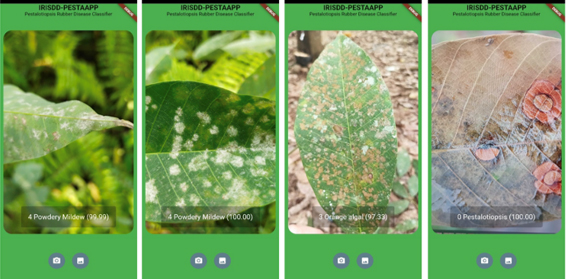Insect pests and diseases are one of the many factors threatening the production of rubber plantations in the Philippines. To combat these, the Philippine Rubber Research Institute (PRRI) is exploring strategies to diagnose rubber trees with the assistance of artificial intelligence (AI).
This is being addressed by the project, “Artificial Intelligence-Based Diagnostic Clinic for Efficient Detection and Monitoring System for the Management of Rubber Diseases and Insect Pests,” led by Dr. Jill D. Villanueva of the University of Southern Mindanao (USM). It is funded by the Philippine Council for Agriculture, Aquatic and Natural Resources Research and Development of the Department of Science and Technology (DOST-PCAARRD).

The AI-assisted and online diagnostic clinic called, “Intelligent Rubber Insect Pests and Disease Diagnostic (IRISDD)” will fill in the gaps of a lack of efficient and effective surveillance, detection, and clinic for rubber experts. IRISDD’s objectives include the analysis and a classifier for disease and pest identification, development of a centralized database, and the development of an online platform for easier access among its beneficiaries.
Through this advancement, IRISDD can efficiently address concerns of rubber plantations that cannot be completely combated by traditional techniques. Through a monitoring system, all data regarding rubber tree pests and diseases present in different regions will be seen by stakeholders.
On the other hand, the online clinic will provide rubber farmers and stakeholders a chance to communicate with experts while the mobile application will serve as the offline disease diagnostic tool.
Currently, upgrading of the project is continuous and will be implemented among major rubber producing provinces in the country after its completion. The establishment of the project has a potential to create an impact from small to large-scale rubber stakeholders in the country.

